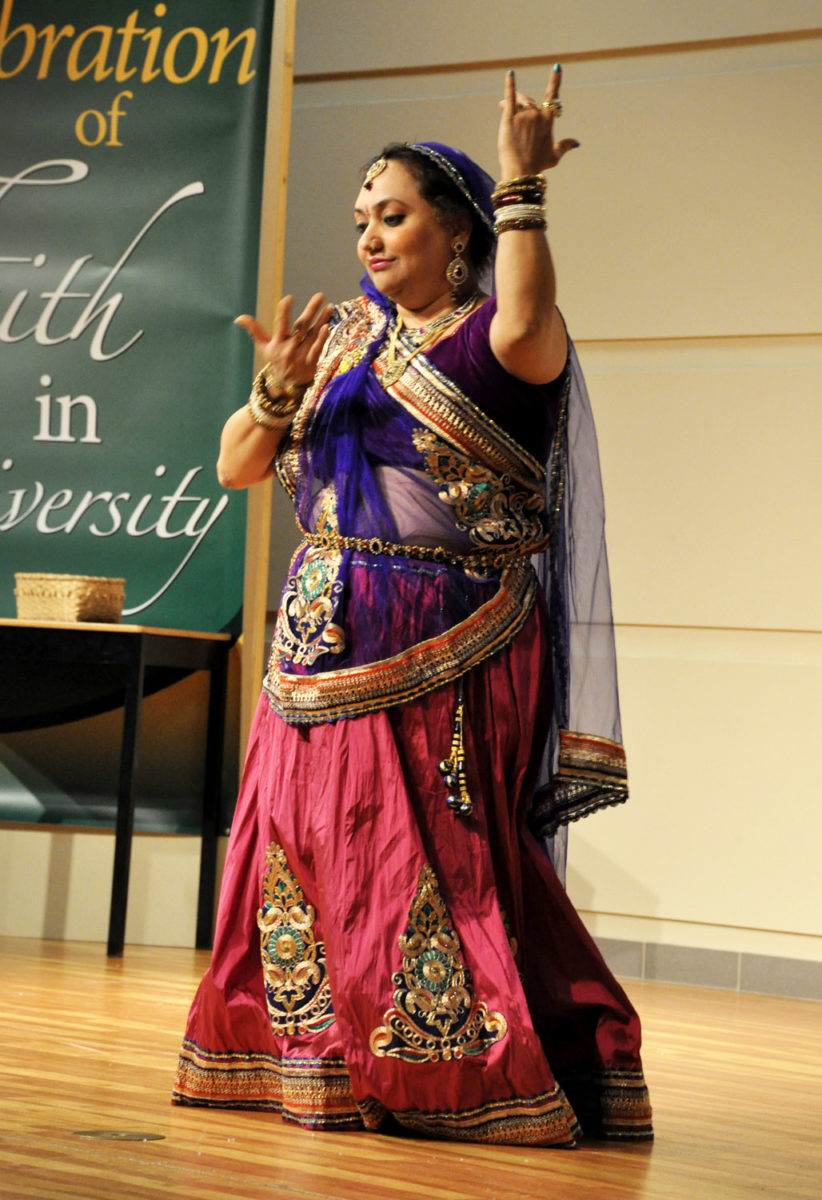St. Thomas University will bring together Fredericton’s faith communities for a day of food, songs, and celebrations on March 29.

The fourth Celebration of Faith and Diversity, organized by religious studies professor Alexandra Bain and her students, will take place in the Kinsella Auditorium Sunday from 1 to 5 p.m. Bain intended for it to become an annual tradition at STU, but so far it has been closer to biannual because she has been on sick leave and sabbatical. The focus this time will be on hospitality.
“Most religious traditions have hospitality as a core tenant,” Bain said. “So I’m really looking forward to it.”
She added that anyone who works with the public or deals with it could benefit from learning more about religious communities at the free event.
Bain said teachers, for example, are usually working with students from all over the world now.
“They might want to know the background to a child’s notion of what hospitality is.”
She said a number of students took cooking lessons and helped prepare traditional meals when they visited people from different faith communities in the city, and that will be on display at the celebration with a big meal to be made by students and participants.
One of her first-year students, Vanessa Skerry, said she took religious studies on a whim, as she signed up for a diverse set of first-year courses to figure out what subjects to pursue later on.
“I think hospitality is [a theme across religions],” she said. “From what I’ve seen from the few communities I’ve been to, they’re really welcoming. They offered food and beverages, and they were very warm. They made you feel like you were a part of their group.”
Every faith in attendance, which includes Anglican, Buddhist, Bahá’í, Catholic, First Nations, Hindu, Jewish, Muslim and Unitarian followers, will put on a 15 minute presentation. These could be songs and dances, poems, discussions, or just about anything else they could put together.
Skerry, who is nominally Catholic and a believer in God, never strictly followed a faith. She says there is value in learning about our spiritual neighbours, even for someone who is unsure, agnostic or atheist.
“Especially nowadays, with everything that’s going on in the news, it shows that if there is trouble in one of the [religious] communities the others will be there to back them up, because they’re friends,” she said. “They don’t have to be super-close friends, but if something happens, they’re going to be there to help each other out.”
